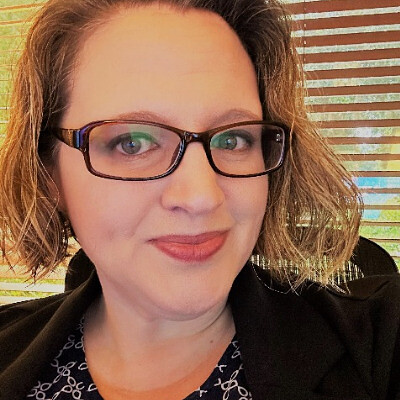
Margaret
Robinson,
M.Ed.
Senior Associate Director, Office of Interdisciplinary Programs
The University of Oklahoma Health Sciences Center
As the Senior Associate Director for the OUHSC Office of Interdisciplinary Programs, Margaret Robinson leads the development, implementation, operation, and evaluation of a competency-driven menu of interdisciplinary learning experiences and supporting faculty development and research activities. Program delivery includes didactic, simulation, and clinical activities for over 2,000 students annually across 19 professions. Of particular significance is her leadership in the student engagement initiative for student-led community partnerships to increase access to care for the medically underserved of Oklahoma. Margaret, who holds a M.Ed. in Adult Education, has expertise in diverse team collaboration, project planning and management.
Presenting at the Nexus Summit:
Background: Designed in 2021-2022 following attendance at the T3 Train-the-Trainer Interprofessional Team Development Program, the Program launched in Fall 2022 with an initial cohort of 15 participants. This included 12 faculty, 2 professional staff members, and one post-grad student. Participants came from three campus locations and represented 10 different professions ranging from nursing, to anthropology, library information sciences, allied health, pharmacy, public health, and medicine. The certificate was designed in a two-step process. The first step, the foundational certificate,…
Lightning Talk Description: The University of Oklahoma Health Sciences Center (OUHSC), Office of Interdisciplinary Program (OIDP) is charged with the development, implementation, operation, and evaluation of campus-wide Interprofessional Education (IPE) activities. IPE activities are offered through OIDP under the direction of a Curriculum Committee. The OIDP Evaluation Team, in particular, is charged with producing evaluation and assessment data related to IPE curricular outcomes for the review of the Curriculum Committee and other campus stakeholders.The development and implementation of an…
Lightning Talk Description: Interprofessional education has gained significant attention and presents an opportunity to enhance the academy through a team-based approach. While compelling global evidence supports the theory and necessity of improved interprofessional collaboration in education, implementing Scholarship of Teaching and Learning (SOTL) across professions requires deliberate and strategic efforts. Faculty development initiatives have started to bridge the gap between educators who were trained separately and the teams they currently lead. Although there is a growing body of…
Lightning Talk Description: This project aimed to improve patient-perceived diabetes management self-efficacy by utilizing a team of bilingual interprofessional students to deliver culturally tailored diabetes self-management education (DSME) to patients of the University of Oklahoma Health Sciences Center’s (OUHSC) student-run free clinic, the Unity Clinic.
Diabetes is a leading cause of death, disability, hospital visits, and medical expense in the United States. Diabetes self-management education (DSME) improves health outcomes in patients with diabetes. Unfortunately, those without…
Lightning Talk Description: Building the case for interprofessional education (IPE) requires a continuous quality improvement plan around the implementation and utilization of curriculum models within participating healthcare programs. The University of Oklahoma Health Sciences Center (OUHSC) implemented the current quality initiative to assess the utilization of extracurricular IPE content. In collaboration with the College of Medicine to achieve the interprofessional requirements of a HRSA grant, this project delivered a formative review of IPE curriculum integration for the purpose of…
Lightning Talk Description: Working together for impact and developing and sustaining IPE, whether interprofessional education, collaborative practice, interprofessional clinical learning environments, or interprofessional academic-community partnerships, requires leadership to attend to the well-being of individuals and teams, as well as their own well-being. While the Quadruple Aim brought attention to practitioner burnout and its deleterious impact on the experience of care of people, the health of populations, and the value and cost of care, it stands to reason that the well-being of…
